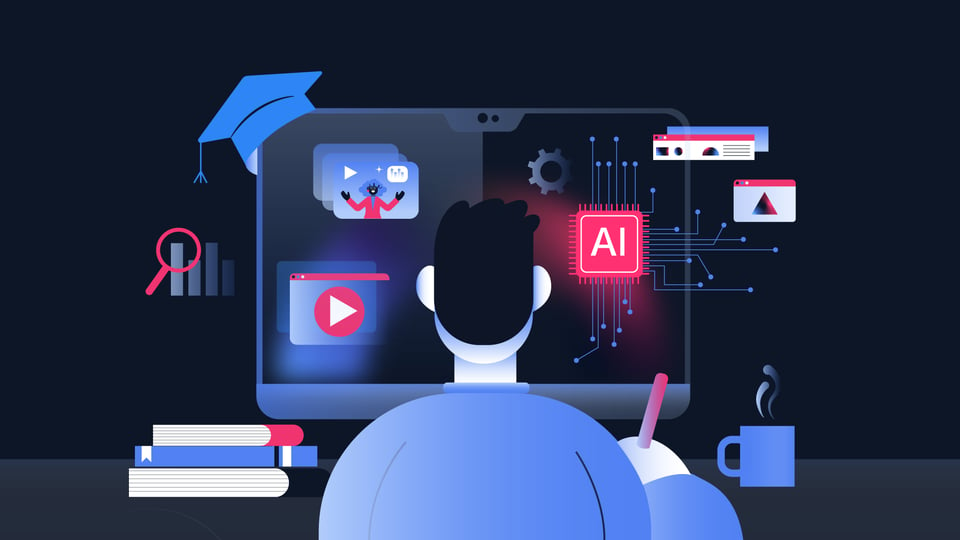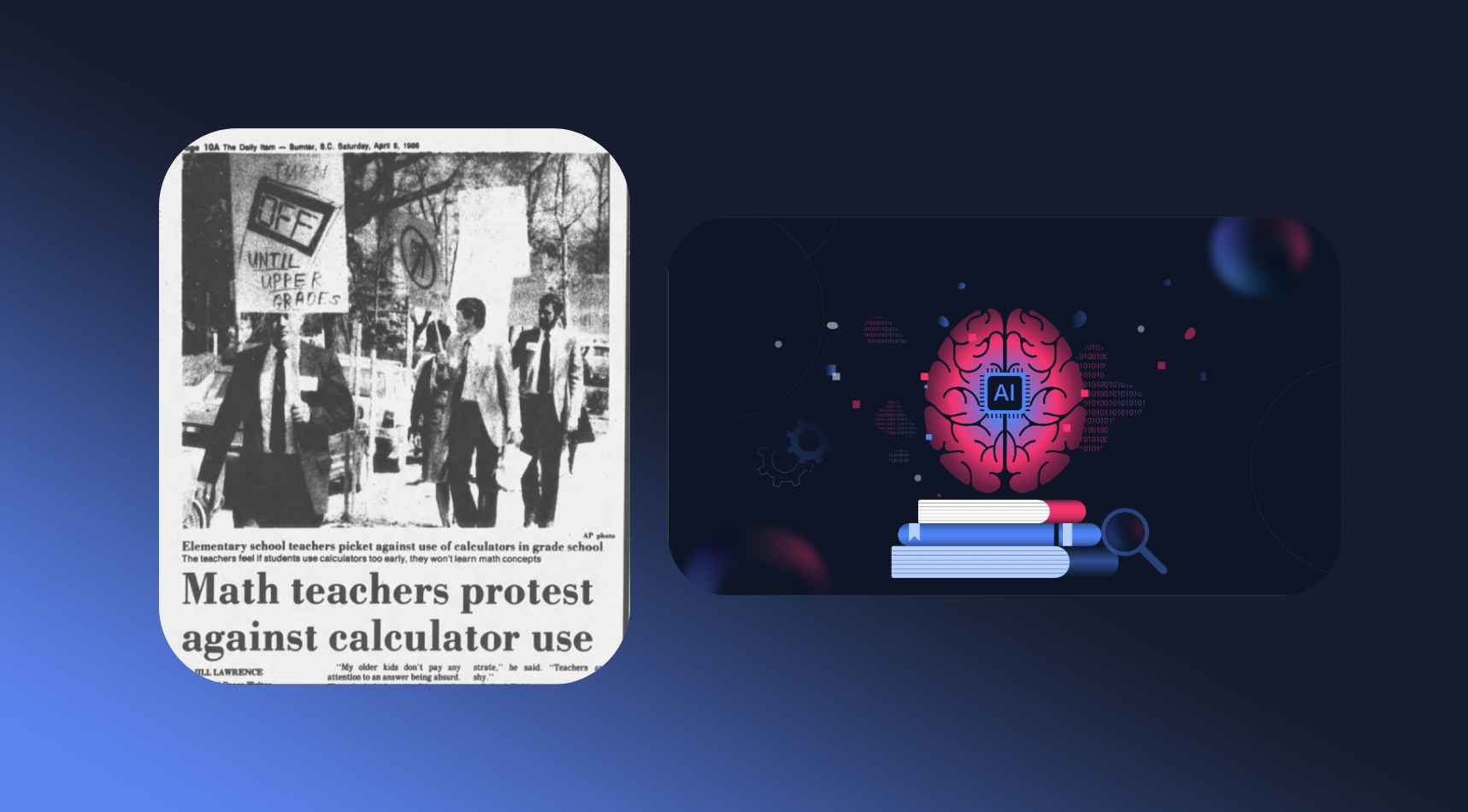As OpenAI and ChatGPT continue to disrupt industries and especially the educational space, we asked ChatGPT to respond on how to protect academic integrity in the age of AI. As lockdown technology was mentioned as a solution, we thought it also needed to provide the difference between a lockdown application and a lockdown browser.
Background; What is the difference between a lockdown application and a lockdown browser?
A lockdown browser is a web browser that restricts access to other applications and websites during an online exam or assessment. The browser is usually installed on the student's device and runs in a full-screen mode to prevent the student from accessing any other resources on their device. Lockdown browsers typically restrict access to functions such as copy and paste, printing, and opening other applications or windows during the exam.
On the other hand, a lockdown application is a software program that can be installed on a student's device or used on a separate device provided by the institution. Unlike a lockdown browser, a lockdown application can lock down the entire device, preventing students from using any unauthorized resources during the exam. Lockdown applications offer a more secure testing environment, greater flexibility and customization, and a more user-friendly student experience.
In summary, the main difference between a lockdown browser and a lockdown application is the level of security and control they provide during an online exam. A lockdown browser restricts access to other applications and websites, while a lockdown application locks down the entire device to prevent students from accessing any unauthorized resources during the exam.
How to protect academic integrity then?
As the use of artificial intelligence (AI) and chatbots like ChatGPT continues to grow, it has become more important than ever to protect academic integrity. Educational institutions must take measures to ensure that students are not cheating during exams and assessments, as cheating not only undermines the value of the education system but also harms the integrity of academic certificates and degrees.
To help promote academic integrity, educational institutions should consider using lockdown technology during exams and assessments. A lockdown application, such as that provided by Digiexam, can prevent students from accessing unauthorized resources during exams, such as search engines, instant messaging apps, or chatbots.
Lockdown technology can also help to ensure that students do not share information during exams, which can lead to cheating. With lockdown technology, students can be monitored remotely to ensure that they are not communicating with each other or accessing resources that they should not be using.
It can also provide an added layer of security by verifying the identity of students taking exams. Digiexam's software, for example, can use biometric authentication such as facial recognition to confirm the identity of the student taking the exam.
While some may argue that lockdown technology is an invasion of privacy, it is important to note that academic integrity is a crucial aspect of education that must be upheld. By using lockdown technology during exams, educational institutions are not only protecting the value of their degrees but also ensuring that students are properly prepared to enter the workforce.
In addition to using lockdown technology, educational institutions must also educate students on the importance of academic integrity. Students should be taught that cheating not only undermines the value of their education but also harms their own personal and professional growth. They should also be taught about the consequences of cheating, which can include expulsion from school or even legal action in some cases.
Overall, protecting academic integrity in the time of AI and chatbots is crucial to ensuring the value of education. By using lockdown technology during exams and assessments, educational institutions can help prevent cheating and promote academic integrity. It is also important to educate students on the importance of academic integrity to ensure that they are prepared to enter the workforce and succeed in their chosen careers.
AI's impact on education - the role of an educator
In a study by the National Bureau of Economic Research, researchers found that the implementation of lockdown technology during exams led to a significant decrease in cheating incidents.
Karthik Muralidharan and Venkatesh Sundararaman.
What measures should educators consider to protect academic integrity in the age of AI?
Educators should consider a range of measures to protect academic integrity in the age of AI. Here are some examples:
- Lockdown technology: As mentioned earlier, lockdown technology can prevent students from accessing unauthorized resources during exams and assessments. Educational institutions should consider using such technologies to ensure that students are not cheating during exams. This can involve software that monitors a student's computer activity during an exam or blocking certain websites and applications.
- Educational campaigns on academic integrity: Educators should raise awareness among students about the importance of academic integrity, and what constitutes cheating. This can involve workshops, seminars, and discussions about the ethics of academic work.
- Reinforce academic honesty policies: Educational institutions should have clear policies on academic honesty, which should be communicated to students regularly. It is important that students understand the consequences of academic dishonesty, such as disciplinary action or expulsion.
- Use diverse assessment methods: Educators can use a range of assessment methods, such as group projects, essays, and oral presentations, in addition to exams. This can make it more difficult for students to cheat, as each student's work will be unique and difficult to copy.
- Train educators on AI technologies: It is important that educators are well-informed about the latest AI technologies and how they can be used to promote academic integrity. They should be trained to use these technologies effectively and to interpret the results generated by them.
In conclusion, it is important for educators to adopt a range of measures to protect academic integrity in the age of AI. These measures should involve a combination of technology and educational initiatives that raise awareness among students about the importance of academic honesty. By taking these steps, educational institutions can ensure that their degrees and certificates maintain their value and integrity and that students are prepared to enter the workforce with the skills and ethics needed to succeed.
Read more

AI’s Dilemma for Assessment
AI’s Ouroboros Buzzwords of artificial intelligence, machine learning, neural networks and deep learning propagate through media channels as the world wakes up to the realities of the state of...
Read more
